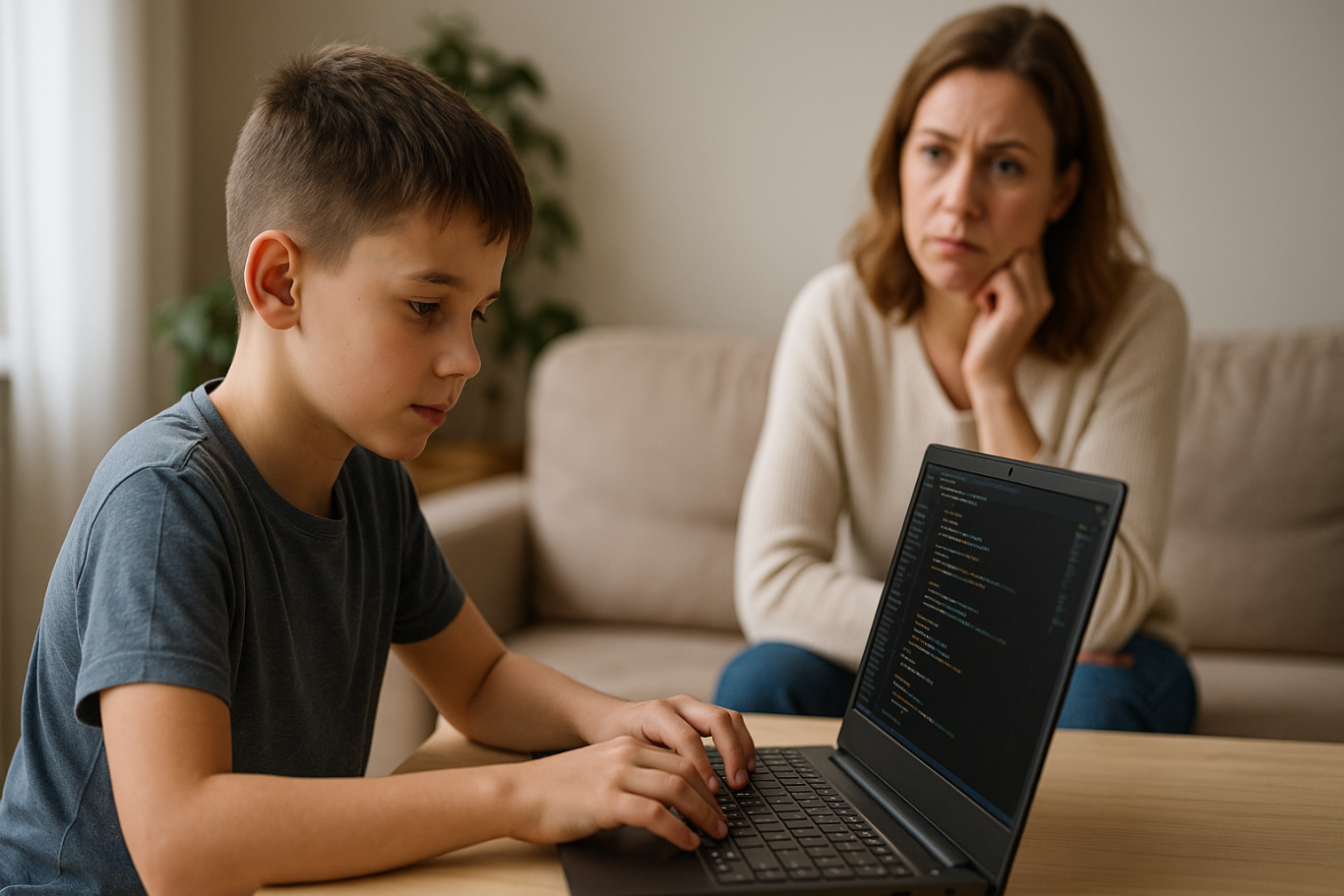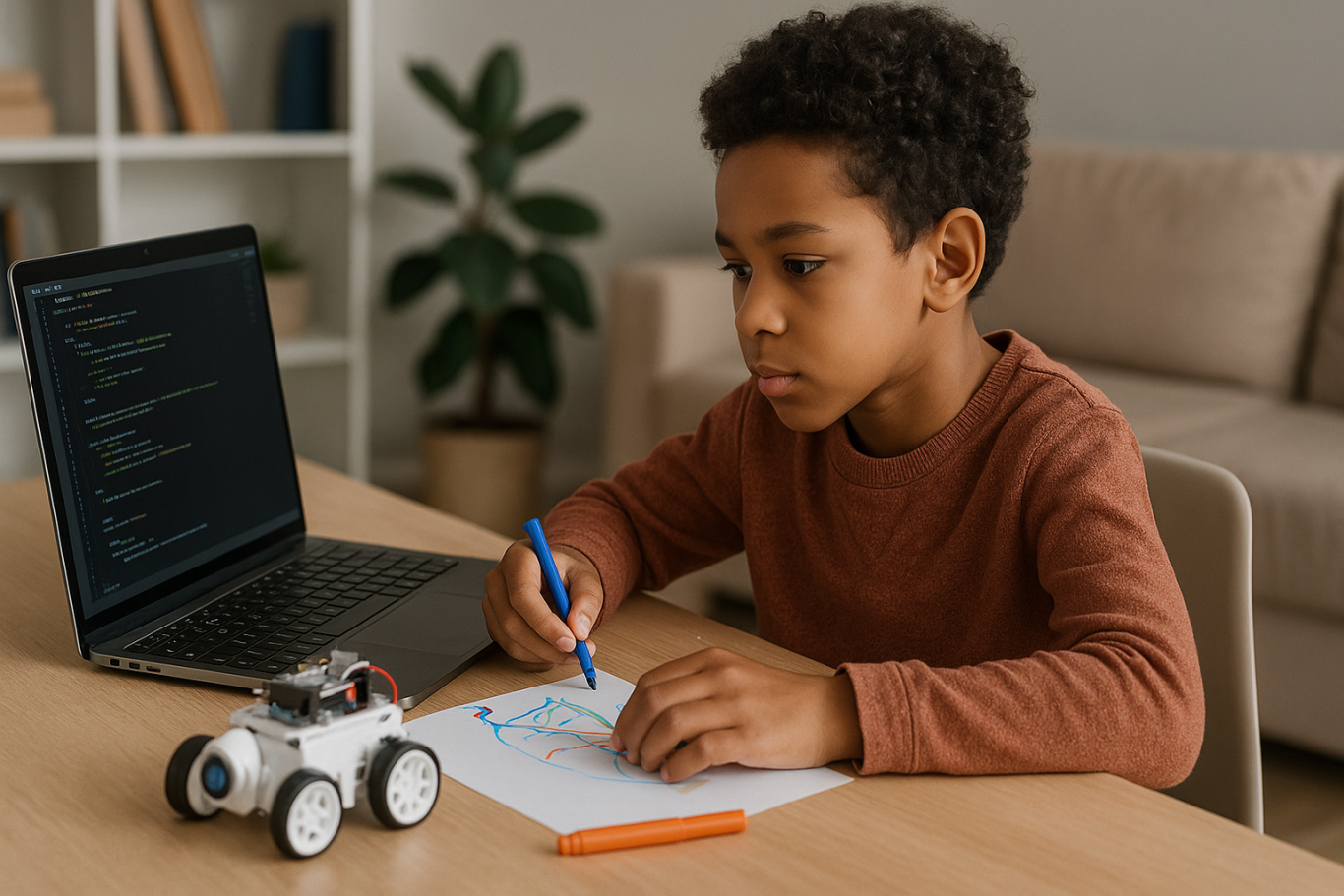Is Coding for Kids Worth It in 2025?
As technology continues to shape the way we live, learn, and work, many parents are asking the important question: is coding for kids worth it in 2025? With the growing digital economy and increasing reliance on technology, coding skills have become highly valuable. But for children, is learning to code truly beneficial? This article explores why coding for kids is a worthy investment, what skills they gain, and how it prepares them for the future.
Why Parents Ask: Is Coding for Kids Worth It?

In the past, coding was seen as a skill for specialists working in IT companies. Today, however, coding has become a fundamental literacy, much like reading and writing. Parents naturally wonder if investing time and resources into coding classes for their children will pay off. Is coding for kids worth it given the demands of modern education and the job market?
The answer depends on how coding education is approached and what children stand to gain beyond just writing lines of code. Coding teaches logical thinking, problem-solving, creativity, and resilience — skills that apply across many areas of life.
Coding Builds Problem-Solving and Logical Thinking

One of the main benefits of coding is that it helps children develop strong problem-solving skills. When kids learn to code, they break down complex problems into smaller steps. This kind of logical thinking improves their ability to analyze situations and find solutions, a skill valuable in school and daily life.
Understanding the structure of coding also improves sequencing and attention to detail. Kids learn to debug and fix errors, which encourages patience and persistence. So, if you ask is coding for kids worth it for developing critical thinking, the answer is a resounding yes.
Coding Encourages Creativity and Innovation

Coding is not just about rules and algorithms; it also allows kids to be creative. When children code games, animations, or simple apps, they use their imagination to design and build unique projects. This process fosters innovative thinking and gives kids a sense of accomplishment.
Many coding platforms designed for children encourage experimentation and playful learning, which makes coding fun and engaging. This creative aspect answers another part of the question: is coding for kids worth it because it helps nurture creativity from an early age.
Preparing for a Tech-Driven Future

The job market is rapidly evolving, with many careers requiring at least a basic understanding of technology and coding. Even professions not directly related to programming benefit from coding knowledge because it improves digital literacy.
By learning to code early, children gain a competitive advantage in their future education and career paths. They become comfortable with technology and adaptable to new digital tools. Hence, is coding for kids worth it for future readiness? Absolutely, since coding equips children with skills that will be essential in almost every industry.
Enhancing Collaboration and Communication

Coding projects often involve teamwork and sharing ideas, especially in classroom or club settings. Kids learn how to collaborate, communicate their thoughts clearly, and work towards common goals. These social skills are as important as technical skills.
So when considering is coding for kids worth it, remember that coding also helps children develop interpersonal skills that benefit them throughout life.
How to Make Coding Fun and Accessible for Kids
For coding to be truly worth it, the learning process must be enjoyable and age-appropriate. Many educational programs today use games, visual programming languages like Scratch, and interactive tools that make coding accessible to young learners.
Parents and educators should look for programs that emphasize creativity, problem-solving, and gradual skill-building rather than rote memorization. With the right approach, kids are more likely to stay motivated and develop a lasting interest in coding.
Supporting Your Child’s Coding Journey
If you are wondering is coding for kids worth it in your child’s case, the best way to find out is to let them try it. Many coding academies and online platforms offer free trials or beginner courses for children.
Timedoor Academy, for example, offers tailored coding programs that are fun and easy to follow for kids of various ages. They also provide free trial classes so parents and children can explore coding without commitment.

Ingin tahu detail program?
Is Coding for Kids Worth It in 2025?
The answer to is coding for kids worth it in 2025 is a confident yes. Coding education equips children with critical thinking, creativity, and essential digital skills that will serve them well in the future. Beyond just learning programming, kids develop problem-solving abilities, collaboration skills, and adaptability needed in today’s fast-changing world.
To support your child’s coding journey, consider enrolling them in programs like Timedoor Academy, which offers engaging and age-appropriate coding lessons. They also provide a free trial class so your child can explore coding in a fun and pressure-free environment before committing. Starting coding early could be one of the best investments for your child’s future success.